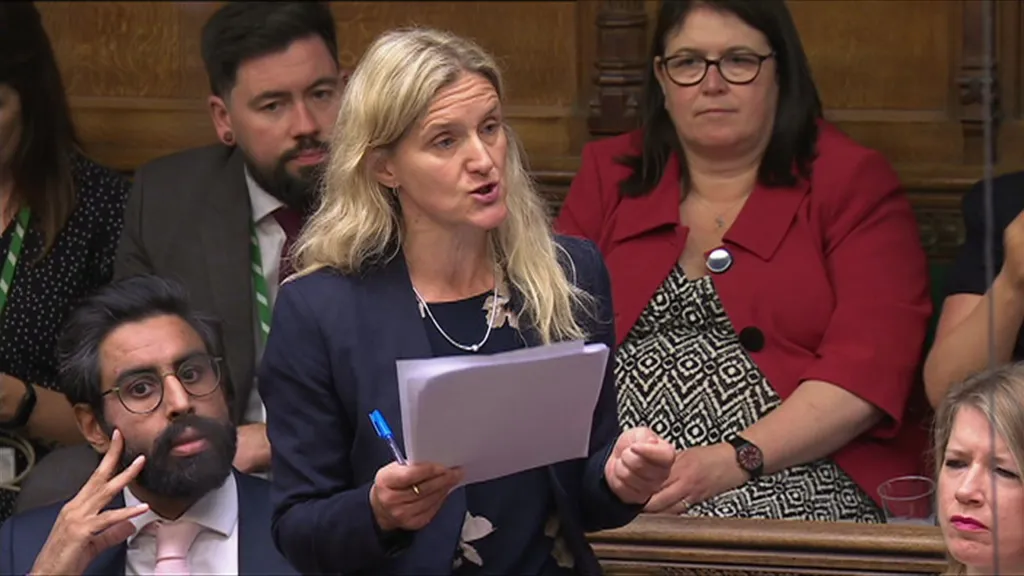Proposed changes to a law on assisted dying would deprive the Senedd of the power to decide when to bring the bill into force, the House of Commons has heard.
MPs have spent a second day debating amendments to Kim Leadbeater's private members bill.
A power for the Senedd to decide when most of the bill comes into law was added at an earlier stage, but Leadbeater is now trying to have that removed.
Her supporters say this will better reflect the fact that criminal law is not the Senedd's responsibility, but Liberal Democrat Sarah Olney said the bill gives the UK Parliament the power to impose the law on the Senedd.
A Labour politician said that some parliamentarians were "confused" about what is and is not devolved.
Olney said the Welsh Parliament had already rejected the idea last year.
During the same debate MPs voted to prevent health professionals such as doctors from initiating conversations with under-18s about assisted dying.
Members of the Senedd (MSs) voted against the principle of an assisted dying law last October – with 19 in support and 26 against the motion that was tabled by Labour MS Julie Morgan.
Among those opposed at the time were the First Minister Eluned Morgan and the Health Minister Jeremy Miles – senior figures in the government that would be tasked with implementing the bill in Wales.
The Senedd is likely to have to vote again on the bill at least once, and despite the last result, what might happen is unclear.
Nine people abstained in October – enough to allow the motion to pass if they changed their mind.
The motion itself also did not ask Senedd members if they supported Leadbeater's private members bill, which is narrower in scope than what Labour MS Julie Morgan had tabled the Senedd.
However, Miles told S4C's Y Byd yn ei Le in April that his view had not changed on the "principle of it".
"I think the question in terms of the pressure on people at the end of their life is very complex, and there are important responsibilities related to that," he said.
Mr Miles said "we have the principle of the Sewell convention, which requires that every devolved parliament has a voice on this, and the voice of the Senedd here in Wales has been clear on this so far".
The Cardiff parliament will need to debate whether it gives legislative consent over the bill – a move that would not be legally binding but would say whether or not the Senedd is in support.
MPs on Friday debated how much legal power MSs should have.
